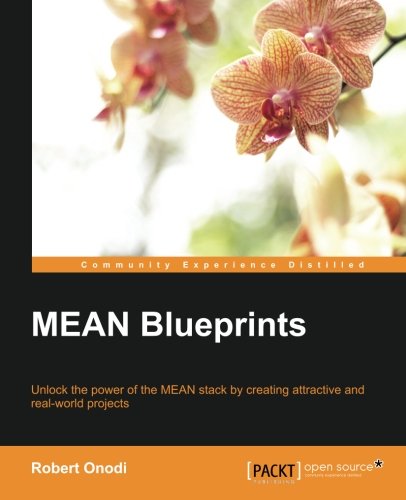

Most ebook files are in PDF format, so you can easily read them using various software such as Foxit Reader or directly on the Google Chrome browser.
Some ebook files are released by publishers in other formats such as .awz, .mobi, .epub, .fb2, etc. You may need to install specific software to read these formats on mobile/PC, such as Calibre.
Please read the tutorial at this link: https://ebookbell.com/faq
We offer FREE conversion to the popular formats you request; however, this may take some time. Therefore, right after payment, please email us, and we will try to provide the service as quickly as possible.
For some exceptional file formats or broken links (if any), please refrain from opening any disputes. Instead, email us first, and we will try to assist within a maximum of 6 hours.
EbookBell Team

4.1
20 reviewsThe MEAN stack is a combination of the most popular web development frameworks available―MongoDB, Angular, Express, and Node.js used together to offer a powerful and comprehensive full stack web development solution. It is the modern day web dev alternative to the old LAMP stack. It works by allowing AngularJS to handle the front end, and selecting Mongo, Express, and Node to handle the back-end development, which makes increasing sense to forward-thinking web developers. The MEAN stack is great if you want to prototype complex web applications.
This book will enable you to build a better foundation for your AngularJS apps. Each chapter covers a complete, single, advanced end-to-end project. You'll learn how to build complex real-life applications with the MEAN stack and few more advanced projects. You will become familiar with WebSockets and build real-time web applications, as well as create auto-destructing entities. Later, we will combine server-side rendering techniques with a single page application approach. You'll build a fun project and see how to work with monetary data in Mongo. You will also find out how to a build real-time e-commerce application.
By the end of this book, you will be a lot more confident in developing real-time, complex web applications using the MEAN stack.
What you will learnRobert Onodi has been developing software for close to a decade now. He started working on small applications in Flash, and later moved on to the LAMP stack. For most of his career, he has been working with JavaScript. Having knowledge of both server-side technologies and a passion for JavaScript, he rapidly adopted Node.js in his development stack.
Currently, he works at Evozon, where he shares his dedication for technology and JavaScript with others and develops modern applications using the MEAN stack. Besides his daily programming routine, he is also passionate about mentoring and training.
Table of Contents